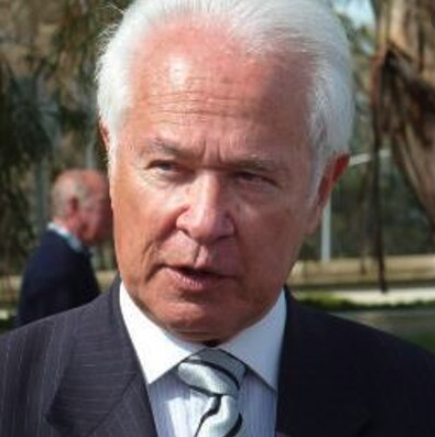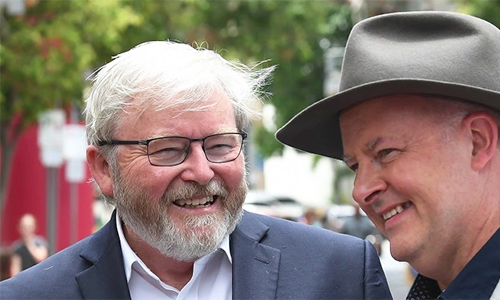
by DAVID FLINT – THE succession of disasters over which the Albanese Government is presiding is gradually becoming apparent to voters.
It appears to have dawned on certain media outlets that the record honeymoon they granted the Albanese Government, excusing it from the rigorous examination they unhesitatingly imposed on the Howard and Abbott governments, is inconsistent with expectations of their audiences, and would, if continued, reflect increasingly poorly on them.
- If the Voice result is the defeat we have long predicted, this will be upon the Prime Minister’s head.
- Any referendum not having, at this stage, the support of well over 50 per cent of electors nationally and in at least four States, is in serious trouble.
Among the most obvious disasters is the cost of living.
Given the promise that significant savings would be made, both the extraordinary increases in the price of energy and the highly precarious nature of its supply are together imposing impossible burdens on Australians.
DISASTERS
No matter how much the government blames the Ukrainian war, few believe them.
Other disasters include the heavy burdens imposed on farmers, miners and business, a housing crisis exacerbated by massive immigration, the collapse of morale in the armed forces and falling standards in education.
The new dams ban will probably not be noticed until the next drought.
While the Coalition must accept part of the blame, the Albanese government seems always determined to go further, especially in relation to their net-zero CO2 target. Not only is this based on a discredited theory, it is also pointless, as any reduction will be more than eclipsed by Beijing.
Global warming apart, the leading disaster is one where the government naively believed it was home and hosed, the Voice referendum.
In the increasingly unlikely event that this gets up, it will be like every other government and activist judicial measure over the past six decades.
It will fail, spectacularly, in closing the gap. On this Peter O’Brien, interviewed on ADH TV, has produced an excellent book published by Connor Court, The Indigenous Voice to Parliament? The No Case.
In addition, anyone seriously interested in the subject should read The Break-Up of Australia by Keith Windschuttle, also interviewed on ADH TV.
Apart from enriching and empowering the indigenous establishment, the Voice will, according to Albanese’s choice for his Referendum Working Group, Thomas Mayo, “punish politician” who do not obey it.
It will “abolish colonialist institutions”, no doubt including, despite Minister Burney’s initial denials, Australia Day. It will also ensure that other Australians “pay the rent, pay reparations and compensation”.
SUPPRESSED
Mayo also recalled something embarrassing and long suppressed, the seminal role of the Communist Party in the successful campaign against the Menzies government’s assimilation policy which would have undoubtedly closed the gap.
From experience, I would say any referendum not having, at this stage, the support of well over 50 per cent of electors nationally and in at least four States, is in serious trouble.
With the media honeymoon, and the support of much of Big Business, Big Sport and most politicians, the government probably thought they were on track to win.
In addition, they probably assumed immigrants lacked the wariness about referendums which is a mark of older Australians.
Any such assumption was demonstrably wrong in the republic referendum.
On the other hand, they were probably right to think that the degree of indoctrination in the schools will help the Yes vote among many younger voters, at least until they mature.
The government made a mistake in manipulating what is normally a level playing field thus increasing suspicion.
They also made a mistake in assuming Australians’ calmness indicated a lack of concern, instead of indicating a greater political sophistication than in certain other countries.
As to that elephant in the room, electoral fraud, a leading psephologist advised Australians for Constitutional Monarchy in the 1999 republic referendum that fraud should be assumed.
However, as the final result was likely to be substantial, he advised fraud would not be sufficient to change it.
One of the outrages in this campaign has been the number of executives in various organisations for which this referendum is none of their business, who have nevertheless arrogantly decided they would throw the weight of their shareholders, and in relation to sports, their players and supporters, behind the Yes Case, without even bothering to seek their consent.
REJECTED
They may have to explain later why they pushed support for something which the nation so convincingly rejected. They will justifiably be seen as out of touch.
The executive organ of ACM, which I convene, agreed unanimously with my advice that this referendum, not being within our remit, should be one where we make no recommendation on how people should vote.
By way of contrast, the Australian Republican Movement prioritised campaigning for the Voice over even “the” republic, a decision which no doubt delighted constitutional monarchists.
However, as ACM had long taken a leading position in ensuring the integrity of the referendum process, something clearly within our remit, we did make a submission to parliament on the need to maintain a level playing field.
ACM has argued this consistently since 2015, when the then prime minister, Tony Abbott while delivering the Neville Bonner Oration, called on us to support constitutional recognition.
In reply, we argued that rather than asking the people, at the end of a process, to vote Yes or No, it was preferable to invite them to be involved from the beginning.
After all, this was how we federated to form one nation under the Corowa Plan.
TROUBLED
When The Australian Financial Review recently published an opinion piece on this on June 14, their headline was, “Take a tip from the monarchists on the troubled Voice progress”.
The following day, supporting a convention, the AFR warned that if the referendum failed, there would be a sense of “betrayal and rejection” among indigenous backers, while Australia’s international reputation would “take a hammering”.
But Albanese would not be swayed, choosing instead to insult the opposition leader Peter Dutton when he sought to delay the referendum.
If the result is the defeat we have long predicted in this column, this will be upon the Prime Minister’s head.PC













One early appointment by the Albanese Union Labor Government rarely mentioned is the Ambassador for First Nations Peoples, also referred to by critics as Ambassador for Reparations.
Another example of the influence of the United Nations of many octopus arms of organisations, in this example United Nations Declaration on the Rights of Indigenous Peoples.
It will be NO from me when I vote.
Net Zero Emissions?
Means Net Zero Economy and decline in national prosperity as the exercise in futility continues.
Or as an engineer once described a new invention patented, the perfect solution to a problem that doesn’t exist.
Anthony Albanese
“Albanese grew up with his mother and maternal grandparents in a Sydney City Council home in the Inner West suburb of Camperdown, opposite the Camperdown Children’s Hospital. His grandfather died in 1970, and the following year his mother married James Williamson. He was given his stepfather’s surname, but the marriage lasted only 10 weeks, as Williamson proved to be an abusive alcoholic. Albanese’s mother worked part-time as a cleaner but suffered from chronic rheumatoid arthritis, with the family surviving on her disability pension and his grandmother’s age pension.
Albanese attended St Joseph’s Primary School in Camperdown and then St Mary’s Cathedral College. After finishing school, he worked for the Commonwealth Bank for two years before studying economics at the University of Sydney. There, he became involved in student politics and was elected to the Students’ Representative Council. It was also there where he started his rise as a key player in the ALP’s Labor Left. During his time in student politics, Albanese led a group within Young Labor that was aligned with the left faction’s Hard Left, which maintained “links with broader left-wing groups, such as the Communist Party of Australia, People for Nuclear Disarmament and the African National Congress”.”
A follower of the late Russian Revolutionary Marxist Leon Trotsky, it should not therefore be a surprise that our PM is pushing the agendas behind the Uluru Statement, note that the Architect and Committee Member Thomas Mayo commented in the video truths his thanks to the Communist Elders. I understand that fellow committee member Professor Langton is a Trotsky follower.
It should concern voters that Thomas Mayo also warned that Members of Parliament who attempted to ignore the unelected voices would be dealt with, and earlier the PM commented that it would be a brave parliament that tried to ignore Voice.
I have not heard any comment about the video details truth from the PM to date, obviously he cannot criticise Thomas Mayo’s truth telling video, and/or does not want to give the video more publicity and coverage between voters.
Thomas Mayo is on the Yes23 campaign committee.